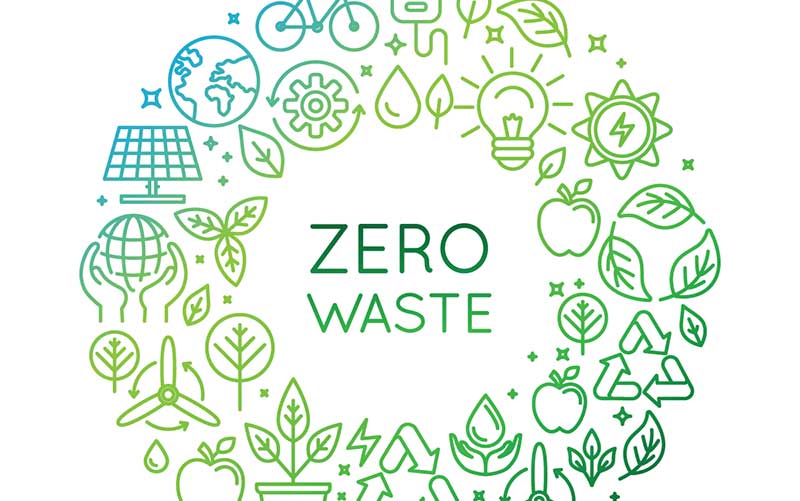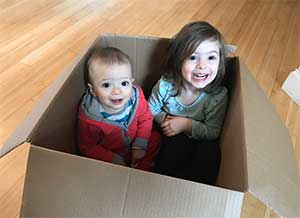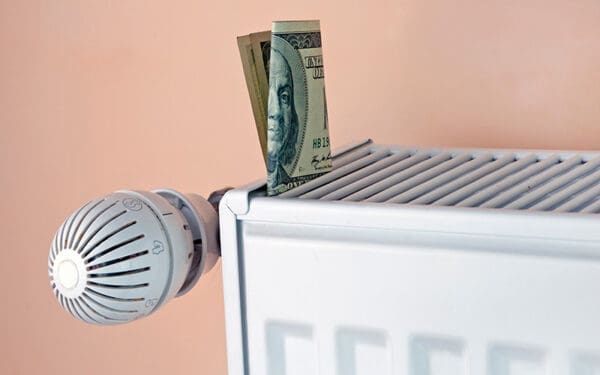
Zero Waste programs divert materials from landfills and incinerators, making our neighborhoods, our air and water, and climate healthier. ©Venimo via IStock
I can still remember the conversation vividly. It was February of 2008 and my brother was calling to beseech me to represent a group of citizens to oppose the expansion of the Southbridge Landfill. I have to admit, I was skeptical about his concerns. This was the brother with all the ideas I sometimes wish he’d keep to himself. He got us all to start drinking raw milk. He’s trying to wean me off sugar and he believes that people aren’t bad, they are ill.
But once I looked into the issue for myself, I realized my brother was right to be worried. Casella Waste, the operators of the Southbridge Landfill, wanted to expand the facility’s capacity by more than 15 times its current load – to go from burying 26,000 tons of municipal solid waste annually to more than 400,000 tons a year.
Landfills Pose a Serious Danger to Our Health and Environment
Even at its 2008 size, the landfill was an environmental horror story waiting to happen. The reality is that all landfills inevitably release toxic landfill gas into the air and contaminated water – called leachate – into the surface and groundwater around them. For communities like Southbridge and those surrounding it, in which thousands of residents get their water from wells, that meant the water we all use for drinking, bathing, and cleaning was already at risk of contamination from the leaky landfill. How much would that risk increase if this landfill was allowed to expand so dramatically?
With three of my brothers, my sister, and myself all living or planning to live with our families on a road a little more than a mile from the landfill, we knew we had to mobilize our neighbors and fight.
Fight we did – we turned people out to meetings, we contacted our legislators, we wrote to the papers. We researched the issues, created a website, made a video, and told our story to everyone who would listen. We appealed the Town of Southbridge Board of Health’s decision to allow the expansion all the way to the Massachusetts Supreme Judicial Court.
Battles Lost and Won – and the Fight Continues
Ultimately, despite our efforts, we lost and, in 2012, Casella Waste was allowed to expand the Southbridge Landfill. However, I’ve kept on fighting, and my family is right behind me. Over the last several years, I’ve worked with environmental advocates across the state to stop the expansion of waste incinerators (which are just as dangerous, if not more so, than landfills). I worked with the Massachusetts Department of Environmental Protection’s Solid Waste Advisory Committee to ensure that their Solid Waste Master Plan included Zero Waste provisions that would increase diversion and decrease disposal.
I’ve also learned that the Southbridge Landfill, despite leaking contaminants into the groundwater for about 20 years, is not atypical, or even the most dangerous waste facility in the state. Saugus and Revere have a double whammy – the oldest waste incinerator in the state, and an unlined ash landfill, which was built on top of a municipal solid waste landfill, in a marsh designated an Area of Critical Environmental Concern.
The Zero Waste Project
This year I joined Conservation Law Foundation to devote myself to this work full-time. We have launched the Zero Waste Project to address the solid waste problem in Massachusetts. In particular, we need people to understand:
- Environmental justice (EJ) communities are hardest hit by impacts from solid waste facilities. Six out of seven of the waste incinerators in Massachusetts are in EJ communities. Southbridge, which is home to the largest municipal solid waste landfill in the state is also an environmental justice community.
- Water contamination around landfills is inevitable. All of the seven active ash landfills and eleven active municipal solid waste landfills will leak leachate or are leaking leachate and there is no plan, bonds, or other funding to remediate this contamination. In fact, these releases are ignored by the Massachusetts Department of Environmental Protection until the contamination is not only present in drinking water, but exceeds drinking water standards.
- NO, it does not “have to go somewhere.” The prevailing myth is that we have to bury or burn our waste. Anything else would be too complicated, too expensive, or just too hard to implement. Communities around the world, including Nantucket, Seattle, and San Francisco prove this assumption wrong. Reduce, reuse, recycle, redesign, and compost/anaerobic digestion programs, or “Zero Waste” programs, work to divert materials from landfills and incinerators. Instead of polluting our environment and wasting resources, we can create new industries and new jobs and build a cleaner, sustainable economy.
- Energy and transportation reforms will not reverse climate change alone. Not without converting our linear economy to a circular economy. We mine, we harvest, and we pump more resources every year without acknowledging how much energy we are wasting by using virgin materials (it takes 100 times more energy to produce a unit of virgin paper than a unit of recycled paper). We waste good products (40% of food is wasted in this country) and then burn or bury them without any regard for the cost of replacing them.
So it’s a public health problem. It’s an environmental justice problem. It’s a local problem. It’s a regional problem. It’s a national problem. It’s a problem we need to solve if we are going to reverse climate change. And we know how to solve it. In fact, many places around the world have come close to solving it, and we need to follow their lead.

This is Personal – For Everyone
For me, this continues to be personal, as well. Casella Waste has applied to expand the footprint of the Southbridge Landfill so they can bury another four million tons of municipal solid waste there. And just as my brother predicted in 2008, contaminants have been found in the home wells closest to the Southbridge Landfill in Charlton and Sturbridge. Another brother now has babies, and he just found out that the water he is bathing his babies in every day is contaminated and not safe.
We at CLF have launched the Zero Waste Project to protect my family, your family, and all the families in Massachusetts. Be sure to stay up to date on this work by signing up to receive emails and action alerts from CLF. And, please consider supporting this and all of CLF’s work with a donation today. We’re going to keep fighting, but the more help you give us, the sooner we will be able to win.



